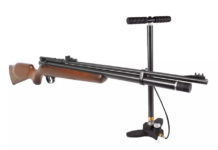If you’re an avid angler planning to embark on a cruise adventure, you might be wondering if you can fish off the side of a cruise ship…
While the idea of casting your line from a luxury cruise may sound like a dream come true for some, there are important rules and regulations to consider when it comes to fishing during your cruise.
Most cruise ships do allow passengers to bring their own fishing gear on board. However, your fishing equipment is strictly limited to port use only.
Let’s discuss the reasons behind these rules and explore some alternative fishing options during your cruise holiday…
Can you fish off a cruise ship balcony?
Fishing from a cruise ship balcony is never allowed. This is due to the potential risks to marine wildlife and the potential safety hazards it may present to guests on board.
One incident took place recently when a man was caught fishing from his Carnival cruise ship balcony. Not only did this raise eyebrows over the ship’s fishing policy, but it also led to discussions about potential animal welfare issues regarding the exotic fish he caught.
When you’re on a cruise, it’s important to always follow the ship’s guidelines and rules, including those regarding activities such as fishing. Violating these rules may result in consequences such as being banned from the cruise line for life.
So, although the idea of casting a line from your own cruise ship balcony may seem tempting, please don’t try it. It’s a really bad idea.
Fishing Rules On Cruise Ships
You cannot fish from a cruise ship for a few reasons, and understanding those rules will help ensure a smooth sailing experience.
One of the main reasons fishing isn’t allowed on cruise ships is due to safety concerns. Cruise ships are massive and have high decks, which can make fishing unsafe for both the angler and those nearby.
The risk of injury from casting or handling fishing gear is high, along with the possibility of accidentally hooking a fellow passenger. Cruise lines want to ensure the safety and enjoyment of all their guests, so they have implemented strict policies to avoid potential accidents.
Another reason is practicality – cruise ships typically travel at speeds of10 to 20 knots, which makes it difficult to fish effectively from such a high deck.
Even though you can’t fish directly from the ship, many cruise lines offer fishing excursions during port stops. These trips are specifically designed for passengers who want to try their hand at fishing while visiting various destinations, such as Alaska.
So, while you may not be able to cast your line over the railing of the ship, you can still enjoy the thrill of fishing during your cruise holiday.
Fishing Cruises
Many cruise itineraries include stops at ports with amazing fishing opportunities. In these cases, you’re more than welcome to bring your fishing equipment and enjoy some quality angling time on land.
There are also specialised fishing cruises available, which focus on providing the best fishing experience at sea. These vessels are designed with anglers in mind, and they usually offer guided fishing trips and expert advice, so you can make the most of your time in the water chasing your favourite fish species.
Make sure to research the ports of call on your cruise itinerary, plan your fishing adventures in advance, and enjoy the incredible locations you’ll visit. And always ensure you adhere to local regulations and fishing restrictions to guarantee both your safety and the sustainability of the marine ecosystem.
Consequences Of Illegal Fishing
Fishing off a cruise ship is not only prohibited but could also lead to severe ramifications.
Firstly, violating the cruise ship’s rules could lead to a lifetime ban from the cruise line. You’d lose the opportunity to enjoy future cruises with that company, and this could tarnish your reputation with other cruise operators as well.
For example – Carnival Group owns not just Carnival Cruise Line, but Princess Cruises, Holland America Line, P&O Cruises, Costa Cruises and a whole host of other brands.
Another adverse consequence of illegal fishing is that you could create potential hazards for the ship’s crew and fellow passengers. Fishing lines might get caught in the ship’s propellers or accidentally entangle someone, leading to accidents or even damage to the vessel itself.
Moreover, environmental concerns come into play. Cruise ships strictly prohibit disposing of anything overboard, and fishing off the ship falls under this rule. You could unknowingly contribute to pollution and potentially harm marine life.
Lastly, engaging in illegal fishing could spoil your cruise experience as a whole. You might face serious reprimands, fines, or even expulsion from the ship. Your actions could put a damper on not just your vacation, but that of your fellow passengers as well.
Bringing Fishing Gear On A Cruise
Generally speaking, most cruise ships allow you to bring your own fishing equipment on board. However, it’s essential to remember that your fishing gear should only be used on land or on a fishing boat.
Before packing your fishing gear, it’s best to check the specific regulations and policies of the cruise line you’re travelling with. Some items may be prohibited. While you’re unlikely to be denied boarding due to an oversight, you may have your items confiscated until after the cruise.
You should also remember to pack your gear securely and appropriately to protect it during your journey.
FAQs
Related Topics
- Man Caught Fishing From Cruise Ship Balcony
- What Can You Get Away With in International Waters?
- The 15 Best Activities To Do On An Alaska Cruise











































